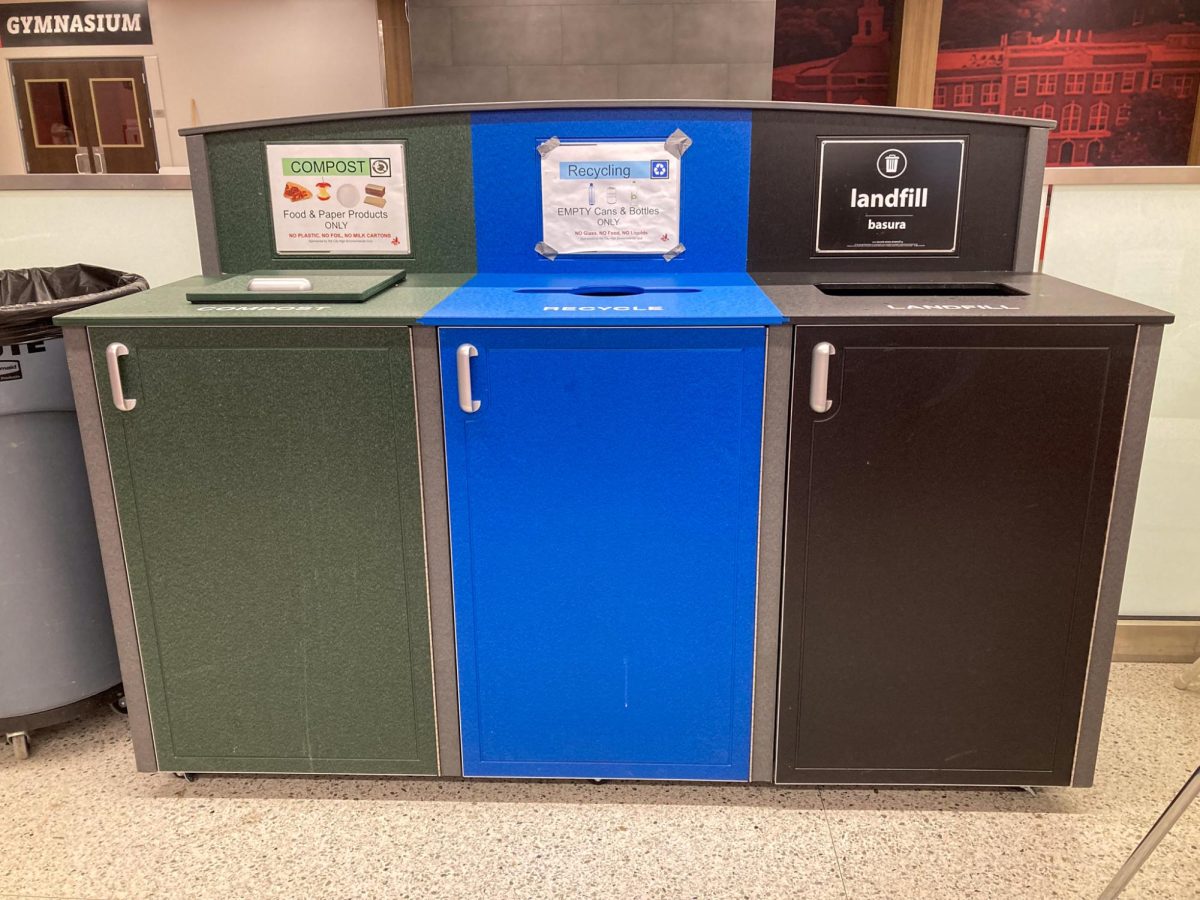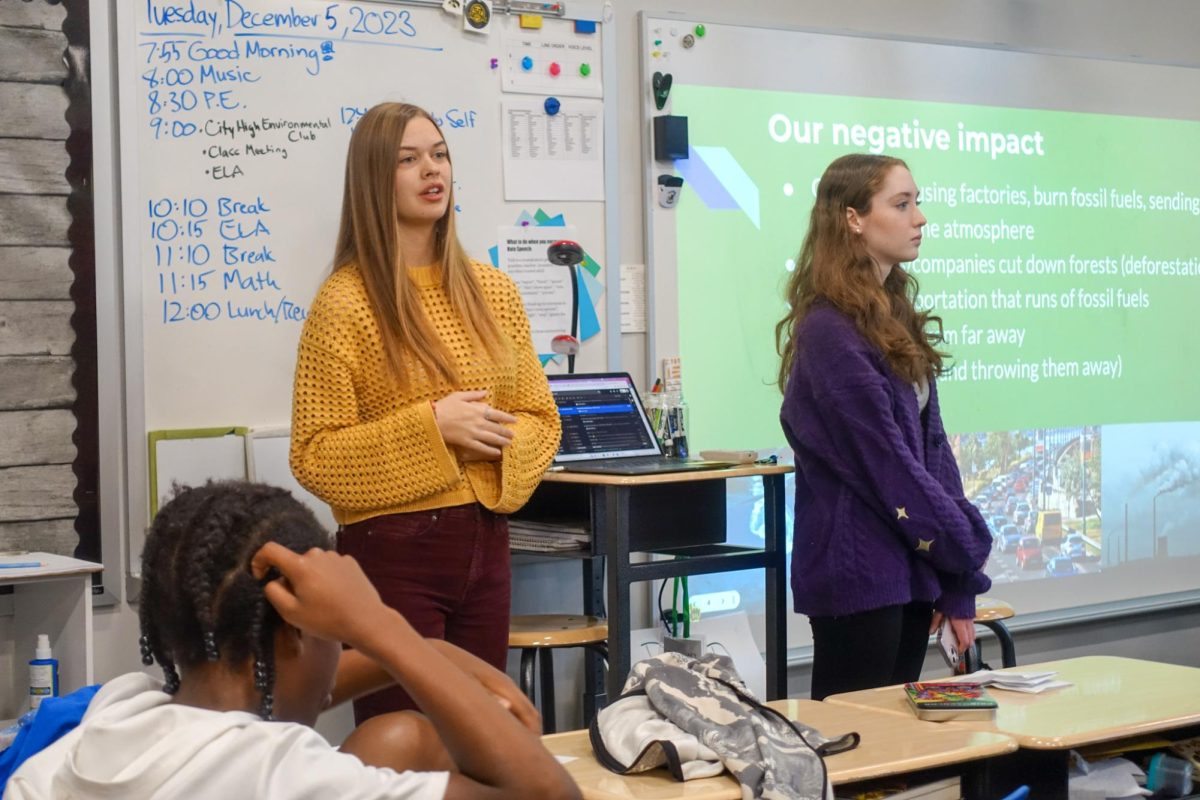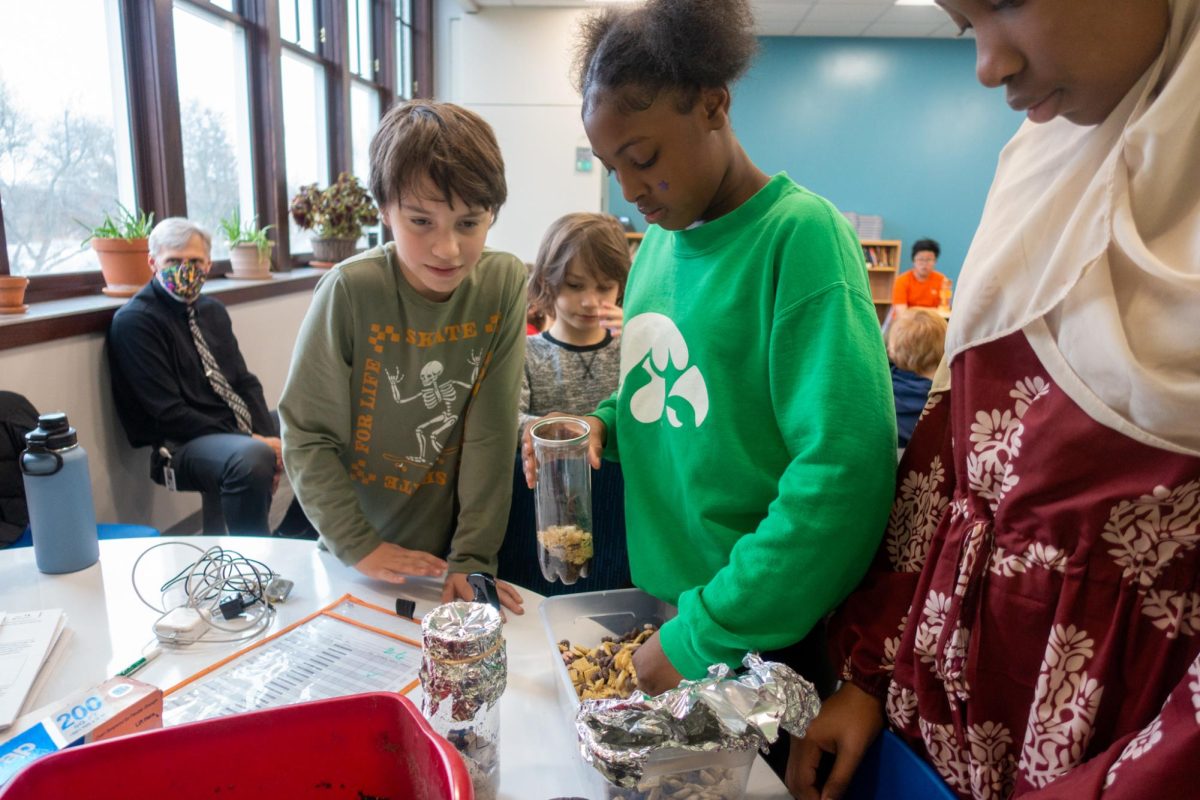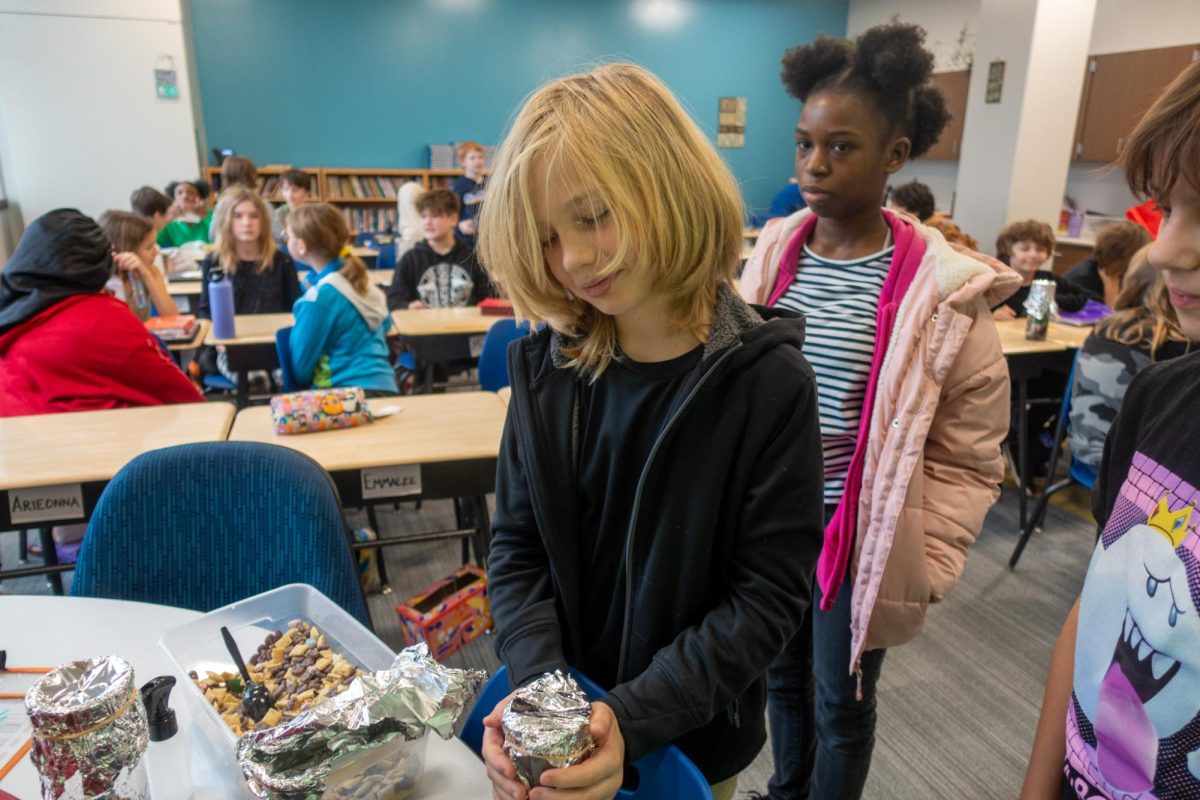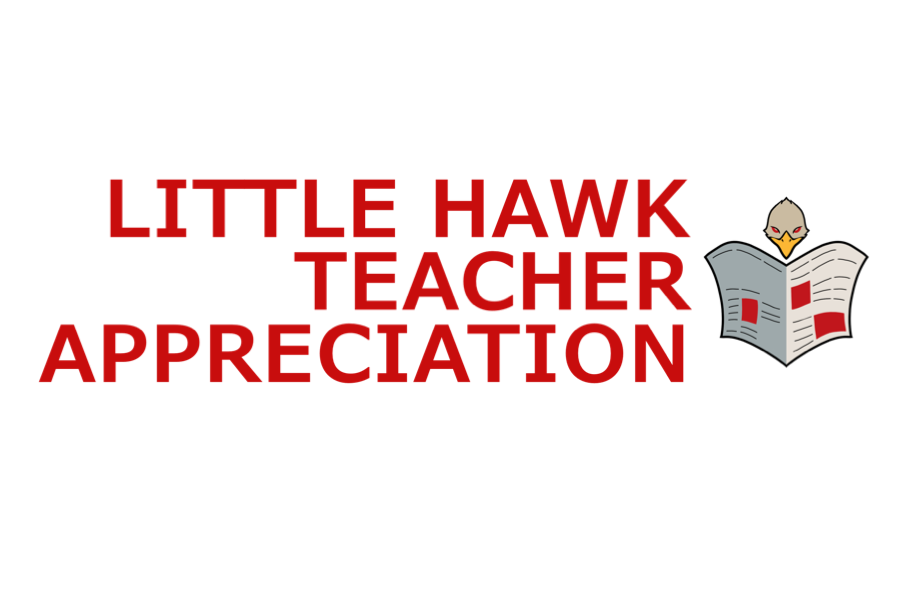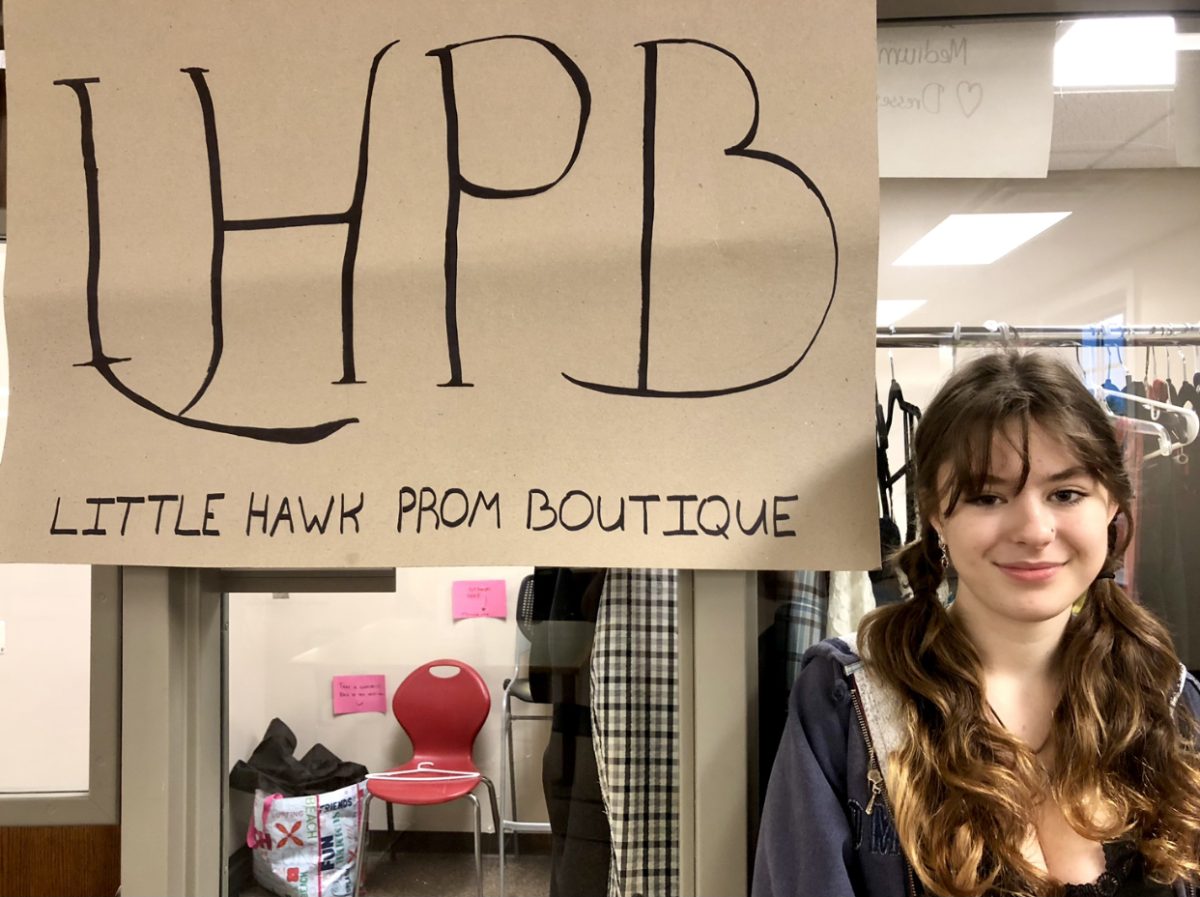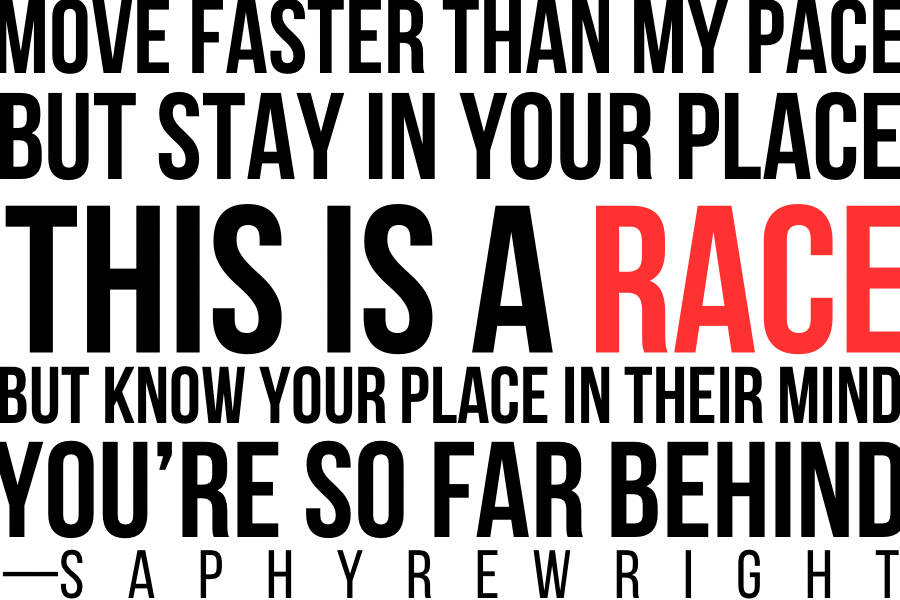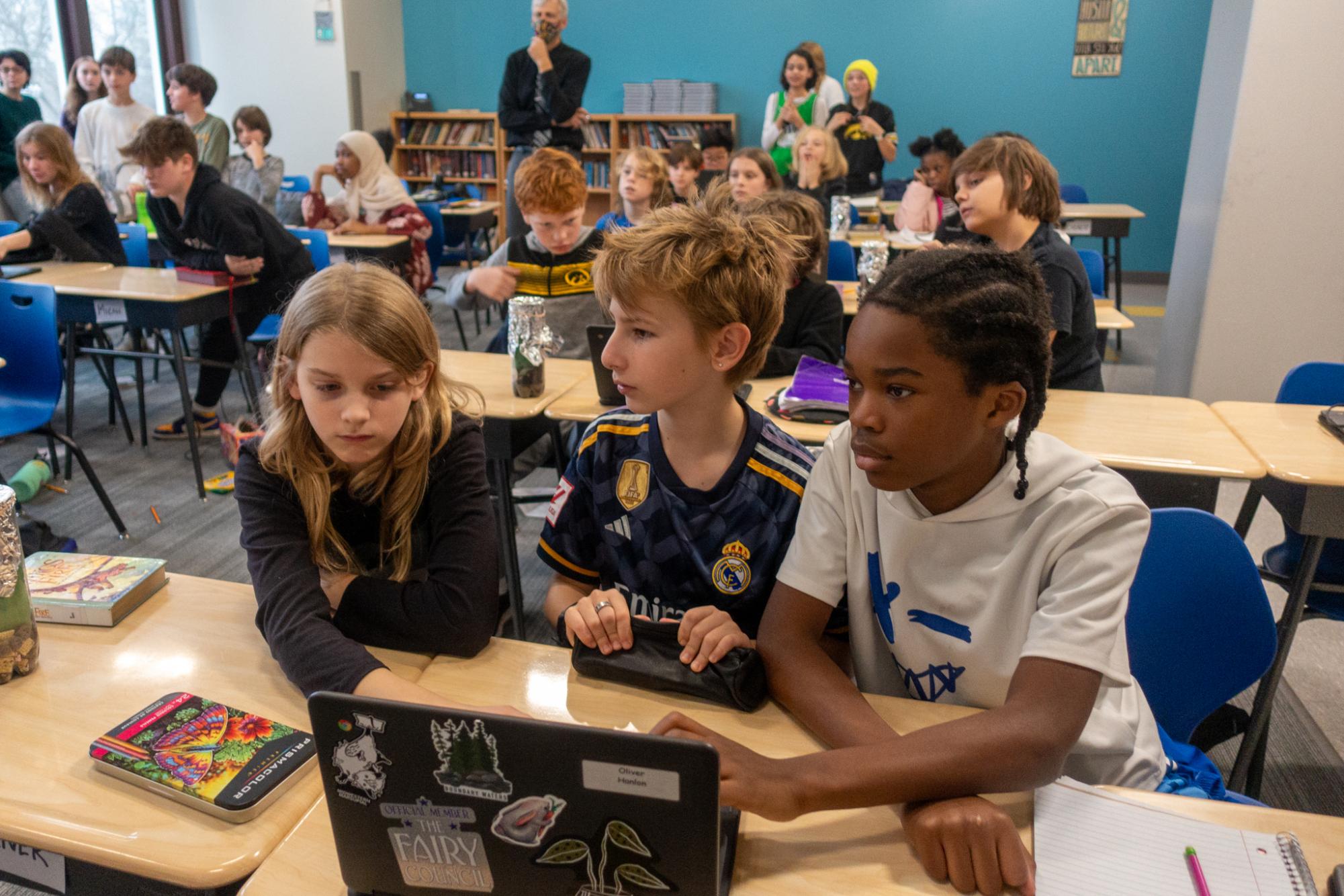
Environmental Club Helps Take Composting Programs District Wide
For the last two years, City High’s Environmental Club has sponsored a composting program at City High. Now, the program is expanding beyond just City to the rest of the school district.
Last year, Mary Lestina, a science teacher at City, and City High’s Environmental Club presented a plan to expand composting programs to the rest of the district that was ultimately approved by the ICCSD Operations Administration Team.
But this new addition won’t come without challenges, and it’s important to understand the significance of composting in order to effectively implement the program.
According to Elizabeth Mackenzie, the sustainability program manager at the University of Iowa, composting is important because it gives a second life to organic materials and the process can reduce carbon emissions.
“In a landfill, organic waste breaks down anaerobically because there’s not much oxygen in a landfill environment. This creates methane as the organic material breaks down,” Mackenzie said. “Methane is a powerful greenhouse gas. If organic waste is composted in an aerobic environment instead, it will create carbon dioxide as it breaks down, which is still a greenhouse gas, but it is not as harmful as methane.”
The University of Iowa has had an extremely successful composting program similar to City High’s since 2007. After collecting unconsumed food waste from the dining halls, they send it to the City of Iowa City composting facility, where the food waste is composted. Afterwards, the city sells or gives the compost to the community to use in lawns and gardens. On average, the program composts 600,000 plus pounds of waste a year.
Establishing a compost program isn’t as easy as it seems. Mackenzie recommends focusing on pre-consumer waste (food that doesn’t get served) before post-consumer food waste (food that was served but not eaten). Additionally, she outlined a few basic steps for developing a successful program:
- Determine what type of compost system you are using (small scale, commercial scale)
- Determine what can and can’t be composted in that system
- Collect organic waste determined to be acceptable
- Haul it to a location designated for composting
- Maintain an appropriate carbon/nitrogen ratio of materials (e.g., fallen leaves are a carbon feedstock while coffee grounds are a nitrogen feedstock)
- Turn (or stir) the pile regularly
- Monitor the internal temperature of the pile (as the microorganisms break down the material, they produce heat)
- Sort/sift the compost to get the finished product (toss anything not yet composted back into the pile for further composting)
City High’s current program follows a similar process. Like the University of Iowa, food waste composted at City High is sent to the City of Iowa City, where it goes through the same process that waste from the University of Iowa and the rest of the city does.
The science behind composting is surprisingly simple. As explained by Mackenzie, when organic materials are added to a compost pile, microorganisms use chemicals to break down those materials. This attracts decomposers such as worms, snails, nematodes, centipedes, beetles, and more. The organic material and by-products created by the microorganisms are eaten by the decomposers, which pass the materials through their digestive systems, breaking down the organic material even further. After this process is complete, you have finished compost, which is full of nutrients available for plants to utilize.
In other words, after food waste is broken down in a compost pile, it is decomposed more by organisms that digest the waste. This creates compost that you can use to enrich soil and fertilize gardens.
Co-president Siena Brown ‘26 describes Environmental Club as a student organization that focuses on how to have a more sustainable school and environment.
“It’s important to have this club so that kids can understand the problems climate change poses and what actions they can do to mitigate those harms,” Brown said.
Just last year, the club worked on a variety of different projects. In partnership with the City of Iowa City and GreenCorps, an environmental organization for college graduates, they went canvassing around Iowa City and handed out disaster preparedness kits. Their hard work resulted in all members of the Environmental Club winning a Youth Human Rights Award.
“We asked people about how they felt about recent weather disasters (that had gotten worse due to climate change), and what they felt they needed to be more prepared,” Brown said. “We assembled Climate Resilience Kits, including a Zine that the club had made. We then distributed them to homes around Iowa City.”
In addition, the club hosts an annual Earth Day event, which features environmental organizations with presentations, games, and activities. Since its inception, over two hundred people have attended each year.
Along with their environmentally focused events, the club also runs the City High composting program, which was started by alums Matisse Arnone ‘23 and Nora Gibson ‘23. Every day, after hundreds of students eat lunch in the cafeteria, they have the option to compost their uneaten food waste, which student volunteers collect and send to the Iowa City composting facility.
To help inform students about composting, Environmental Club introduced the Cookies and Composting Campaign. The two day effort started with an informational presentation during Advisory about how to compost at City High and ended with a collective effort to compost during lunch. Students who composted or attended the presentation were given a cookie.
“The idea was to bring more visibility to the composting program and invite people to help volunteer to take out the compost,” Brown said. “It’s a relatively easy job that can be done during advisory. Anyone who does it gets an hour of silver cord.”
You can sign up here to take out the compost during advisory and earn silver cord hours.
This year, Environmental Club has a few main goals:
- Grow the compost program to be more accessible to the student body
- Go to elementary schools to discuss climate change, compost, and what they can do to work against climate change, even as young kids
- Work on the annual Earth Day Event, which has been very successful in the past few years
- Enter into an environmental competition
Compost bins are located in the cafeteria.
Although North Central Junior High has had a composting program for more than ten years, the district isn’t focused on their model. Instead, Mary Lestina and the City High Environmental Club presented a plan like the program at City High to Ben Grimm–the district grounds manager–and the ICCSD Operations Administration team that was eventually accepted.
To date, the program has not expanded across the entire district, although that is the plan. Right now, there are pilot programs at City, West, and North Central with plans to introduce composting to some elementary schools soon.
“The pilot programs are really intended for data gathering and to iron out procedures for collection and disposal,” Grimm said. “The data will allow us to project budget and labor impacts at a district-wide level.”
Programs such as composting cost the district thousands of dollars every year. To fund the project, general funds are being used to cover transportation, labor, and disposal costs, and grants are being used for funding at the local school level.
“We need to gather enough data to accurately project expenditures and how to efficiently use the funds. Currently, the addition of a composting option at a school is not enough workload to justify additional labor to manage the program,” Grimm said. “This means we have to find other efficiencies to offset workload. [It] takes time and information to do this accurately and effectively.”
Despite the financial challenges posed, Grimm expects district-wide composting to be seen within five years.
“I believe we will see it at all secondary schools sooner rather than later,” Grimm said.
Your donation will support the student journalists of Iowa City High School. For 2023, we are trying to update our video and photo studio, purchase new cameras and attend journalism conferences.


